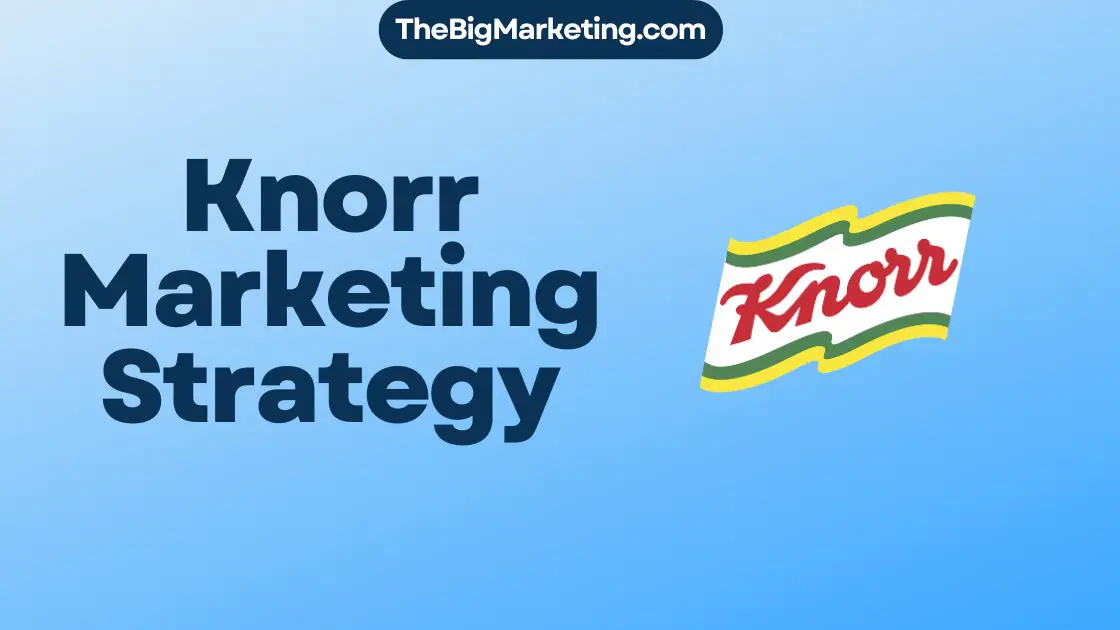Omnichannel marketing in the pharmaceutical industry is a strategy that focuses on creating a seamless, customer-centric experience by interconnecting multiple marketing channels. Unlike traditional approaches that primarily promote medicines, omnichannel marketing goes beyond sales messaging to build meaningful relationships with patients and healthcare professionals.
This integrated marketing approach has proven to be highly effective, with studies showing that it can convert 89% of first-time buyers into loyal customers. By providing a unified, integrated experience across multiple touchpoints, omnichannel marketing prioritizes the customer’s perspective and convenience, enhancing the overall customer experience in the pharma industry.
Through omnichannel marketing, pharmaceutical companies can leverage various channels, including traditional and digital platforms, to engage and interact with their target audience. This allows them to provide personalized marketing experiences tailored to the specific needs and preferences of individual customers, ensuring a more relevant and impactful engagement.
Furthermore, digital transformation has played a significant role in shaping omnichannel strategies in the pharma industry. By leveraging data-driven marketing techniques and advanced analytics, pharmaceutical companies can gain valuable insights into customer behavior and preferences. These insights enable personalized marketing efforts, enhance customer engagement, and drive better business outcomes.
The implementation of an omnichannel strategy in the pharma industry is not without challenges. Factors such as the heavily regulated nature of the industry, data privacy concerns, and the need to create a consistent customer experience across different channels can pose significant hurdles. However, with the right approach and the support of smartshoring solutions, these challenges can be overcome, allowing pharmaceutical companies to fully tap into the benefits of omnichannel marketing.
Key Takeaways:
- Omnichannel marketing in pharma aims to create a seamless, customer-centric experience across multiple channels.
- It focuses on building meaningful relationships with patients and healthcare professionals.
- Omnichannel marketing can convert first-time buyers into loyal customers.
- This approach provides a unified, integrated experience that prioritizes the customer’s perspective and convenience.
- Pharmaceutical companies leverage various channels, including digital platforms, to provide personalized marketing experiences.
Understanding the Difference between Omnichannel and Multichannel Marketing in Pharma
In the world of pharma marketing, understanding the difference between omnichannel and multichannel approaches is crucial for creating effective strategies. While both methods aim to engage customers through multiple channels, their approaches and outcomes differ significantly.
Multichannel marketing in pharma involves utilizing various channels to connect with customers. This can include traditional channels such as television, print, and radio, as well as digital channels like websites, social media, and email. However, each channel operates independently, with its own unique messaging and objectives. The primary focus is to broadcast the brand message across multiple platforms and reach a wide audience.
On the other hand, omnichannel marketing in pharma takes a more holistic approach. It ensures that all channels are digitally interconnected, providing a consistent and convenient customer experience. The goal is to create a unified, integrated marketing journey that keeps the customer’s perspective and convenience at the heart of it. Unlike multichannel marketing, which focuses on delivering the brand message across various platforms, omnichannel marketing prioritizes the customer’s needs and preferences.
Through omnichannel marketing, pharma companies can deliver a seamless and personalized experience to customers across multiple touchpoints. The integrated customer experience offered by omnichannel marketing enhances engagement, loyalty, and ultimately, business growth.
When comparing multichannel and omnichannel marketing in pharma, the key difference lies in the level of integration and prioritization of the customer’s experience. Multichannel marketing focuses on getting the brand message out through various channels, while omnichannel marketing creates a unified and integrated journey that takes into account the customer’s perspective and convenience.
Furthermore, omnichannel marketing provides a more personalized experience that aligns with the customer’s preferences and behaviors. By utilizing customer data and insights, pharma companies can tailor their marketing efforts to better meet individual needs and improve overall customer satisfaction.
In summary, while both approaches have their merits, omnichannel marketing in pharma is the evolution towards a more customer-centric and integrated strategy. By prioritizing the customer’s experience and leveraging interconnected channels, pharmaceutical companies can enhance engagement, build loyalty, and drive business growth.
Why is Omnichannel Marketing Important in Pharma?
Omnichannel marketing plays a vital role in the pharmaceutical industry due to the shifting landscape of the customer journey. Today, customers, including healthcare professionals and patients, interact with pharma companies through various channels, both traditional and digital. In this dynamic environment, an effective omnichannel strategy becomes crucial in delivering a unified, personalized customer experience that is essential for long-term success.
An omnichannel approach recognizes that the customer journey is no longer linear. Customers may engage with a brand through multiple touchpoints, such as social media, websites, mobile apps, email, and in-person interactions. By implementing an omnichannel strategy, pharmaceutical companies can seamlessly connect these channels and ensure a consistent customer experience across all touchpoints.
One of the key advantages of omnichannel marketing is its ability to leverage data insights from each interaction to inform and enhance others. By collecting and analyzing customer data, pharmaceutical companies can gain valuable insights into customer behavior, preferences, and needs. This data-driven approach enables marketers to tailor their messaging and offers to individual customers, resulting in more relevant and impactful communications.
Enhancing the Customer Journey
An omnichannel strategy is customer-centric at its core. By providing a personalized, seamless experience, pharmaceutical companies can enhance the customer journey and build stronger relationships with healthcare professionals and patients. This customer-centric approach fosters trust, loyalty, and satisfaction, leading to improved customer retention and increased brand advocacy.
Moreover, a well-executed omnichannel strategy allows for a more efficient and effective allocation of marketing resources. By understanding how customers engage with various channels and touchpoints, pharmaceutical companies can optimize their marketing efforts, focusing on the channels that generate the highest engagement and conversions. This data-driven approach ensures that marketing budgets are allocated strategically, resulting in a higher return on investment.
The Power of Data-Driven Marketing
Data-driven marketing is a fundamental aspect of omnichannel marketing in the pharma industry. By harnessing the power of customer data, pharmaceutical companies can gain valuable insights into their target audience, allowing them to deliver personalized and relevant content that resonates with their customers’ needs and preferences.
Data-driven marketing also enables pharmaceutical companies to track and measure the effectiveness of their marketing campaigns across different channels. By analyzing data metrics such as engagement rates, conversion rates, and customer satisfaction scores, companies can continuously improve their marketing strategies and optimize their campaigns for better results.
Furthermore, data-driven marketing facilitates a customer-centric approach by enabling pharmaceutical companies to create tailored experiences for their customers. By personalizing content, offers, and interactions, companies can deliver a truly customer-centric experience that addresses individual needs and enhances customer satisfaction.
Driving Customer-Centricity in the Pharma Industry
Customer-centricity has become increasingly important in the pharma industry, as patients and healthcare professionals expect personalized and seamless experiences. By embracing omnichannel marketing, pharmaceutical companies can meet these expectations and position themselves as trusted partners in healthcare.
By leveraging data-driven marketing techniques, pharmaceutical companies can gain a deeper understanding of their customers and deliver targeted messages that resonate with their specific needs and preferences. This personalized approach not only improves customer satisfaction but also enables companies to build stronger relationships and differentiate themselves in a competitive market.
| Benefits of Omnichannel Marketing in Pharma: | Importance |
|---|---|
| Enhanced customer experience through personalized interactions | ✓ |
| Improved customer retention and loyalty | ✓ |
| Optimized resource allocation and higher ROI | ✓ |
| More effective and efficient marketing campaigns | ✓ |
The Transformation of Pharma Marketing through Digital Revolution
The pharma sector is currently experiencing a profound transformation driven by the digital revolution. This shift towards digital technologies and advanced analytics is paving the way for a more sophisticated and customer-centric approach to pharma marketing. In this new era, data plays a pivotal role in enabling pharmaceutical companies to create personalized and efficient customer journeys for both patients and healthcare professionals. By analyzing complex customer journeys and extracting actionable insights, pharma companies can revolutionize their marketing strategies and deliver a more tailored experience.
One of the key benefits of this transformation is the ability to leverage data-driven marketing techniques. Through comprehensive data analysis, pharma marketers can uncover valuable insights into customer behavior, preferences, and needs. Armed with this knowledge, they can personalize their marketing messages and engage with customers on a deeper level. By delivering targeted and relevant content, pharma companies can enhance customer satisfaction and build stronger connections with their audience.
Moreover, the digital revolution allows for the adoption of customer-centric marketing strategies. Rather than relying solely on traditional mass marketing methods, pharma companies can now develop customer-centric initiatives that put the needs and desires of the individual at the forefront. By understanding the unique journey of each customer, companies can create tailored marketing campaigns that provide value, relevance, and exceptional user experiences.
The use of digital technologies also enables more dynamic and responsive marketing strategies. Real-time data analytics empowers pharma marketers to adapt their campaigns in real-time, optimizing their messages and delivery channels based on customer feedback and market trends. This agility allows companies to stay ahead of the competition and deliver marketing initiatives that align with changing customer expectations.
Benefits of the Digital Transformation in Pharma Marketing:
- Enhanced customer engagement
- Personalized customer experience
- Targeted and relevant content delivery
- Adaptability and responsiveness to market trends
As the pharma industry continues to embrace the digital revolution, the potential for transformative marketing strategies is significant. By leveraging data, adopting a customer-centric approach, and embracing digital technologies, pharmaceutical companies can reimagine their marketing efforts and deliver exceptional experiences to their customers.
Best Practices for Data-Driven Omnichannel Marketing in Pharma
To fully harness the power of data-driven marketing in the pharmaceutical industry, companies must adopt best practices that enable effective omnichannel strategies. By leveraging customer data and advanced analytics, they can deliver personalized experiences and drive business growth. Here are some key practices:
-
Consolidate Data for a Unified View of the Customer Journey
To create a seamless customer experience, it’s essential to consolidate data from all touchpoints and channels. This allows for a comprehensive understanding of customer behavior and preferences throughout their journey. By having a unified view, pharma companies can identify patterns, pain points, and opportunities for improvement.
-
Leverage Advanced Analytics for Deeper Insights and Predictive Analysis
Advanced analytics play a crucial role in data-driven omnichannel marketing. By utilizing techniques such as segmentation, predictive modeling, and machine learning, pharmaceutical companies can uncover deeper insights into customer behavior and preferences. These insights enable targeted and personalized marketing campaigns that drive better results.
-
Personalize Interactions Based on Data Insights
Personalization is key to engaging customers in the pharma industry. By utilizing the data insights gained from analytics, companies can deliver tailored content, messages, and offers that resonate with individual customers. Personalized interactions create a sense of relevance and demonstrate a deeper understanding of their needs and preferences.
-
Maintain Data Privacy and Ethical Standards
When dealing with customer data, it is crucial to prioritize data privacy and ethical standards. Compliance with regulations, such as HIPAA and GDPR, ensures that customer information is handled securely and responsibly. By maintaining trust and transparency, pharmaceutical companies can build stronger relationships with their customers.
By following these best practices, pharmaceutical companies can unlock the full potential of data-driven omnichannel marketing. This approach allows them to deliver personalized experiences, foster customer loyalty, and drive business growth in an increasingly digital and interconnected world.
| Benefits of Data-Driven Omnichannel Marketing in Pharma |
|---|
| Enhanced customer engagement |
| Improved ROI and marketing effectiveness |
| Increased customer satisfaction and loyalty |
| Better targeting and segmentation |
| Personalized and relevant customer experiences |
Challenges in Implementing Omnichannel Marketing in Pharma
Implementing omnichannel marketing in the pharma industry presents several challenges that companies must navigate to achieve success. One of the main challenges is the heavily regulated nature of the industry, which can limit the content that can be communicated and the channels through which it can be delivered. Compliance with the regulatory framework is crucial to ensure adherence to industry guidelines and legal requirements.
Navigating the regulatory landscape of different markets adds further complexity to global omnichannel campaigns. Each market may have unique regulations and restrictions that marketers must consider, making it important to tailor strategies and ensure compliance with local laws.
Data privacy and security concerns are particularly relevant in the pharma industry where the nature of healthcare information is highly sensitive. Protecting patient data and ensuring compliance with data privacy regulations such as HIPAA is crucial to maintain trust and confidence among customers.
Creating a consistent customer experience across various channels can be a challenging task. Ensuring that the technology works seamlessly together to provide a unified and seamless experience can be complex and requires careful integration and testing.
Dealing with large amounts of data is another challenge in implementing omnichannel marketing. Collecting, managing, and analyzing vast volumes of customer data demands robust infrastructure and advanced analytics capabilities. Additionally, ensuring the quality and structure of the data is essential for accurate insights and personalized customer interactions.
Adopting an omnichannel approach requires a cultural shift within the company and significant resources. It involves breaking down silos and creating a customer-centric culture that prioritizes collaboration and data-driven decision-making. Allocating the necessary resources, both financial and human, is vital to implement and maintain an effective omnichannel marketing strategy.
In summary, the implementation of omnichannel marketing in the pharma industry comes with numerous challenges, including regulatory compliance, data privacy, consistent customer experience, large-scale data management, and organizational transformation. Overcoming these challenges requires a strategic approach, investment in resources, and an unwavering commitment to providing a seamless and personalized customer experience across all touchpoints.
Overcoming Challenges with Smartshoring in Pharma Omnichannel Marketing
Implementing omnichannel marketing in the pharma industry comes with its own set of challenges. However, smartshoring, which involves offshore production hubs and regional client services teams, can help pharmaceutical companies overcome these obstacles and successfully implement and execute their omnichannel marketing strategies.
Smartshoring offers effective communication and content production for omnichannel campaigns. By leveraging the expertise and capabilities of offshore production hubs, companies can ensure that their marketing messages are effectively conveyed across multiple channels, reaching their target audience with precision and impact.
In addition, regional client services teams allow for cultural adaptability in communications. With a deep understanding of local markets and customer preferences, these teams can create and deliver culturally relevant content that resonates with the target audience, regardless of geographical location. This ensures that the omnichannel marketing efforts are tailored and personalized, maximizing customer engagement and satisfaction.
Moreover, smartshoring takes into account the security and compliance requirements of the pharma industry. Data privacy and compliance with regulatory complexities are of utmost importance in the healthcare sector. By partnering with smartshoring providers that prioritize these aspects, pharmaceutical companies can ensure the highest level of data privacy and compliance with local regulations, minimizing risks and potential legal issues.
Overall, smartshoring provides pharmaceutical companies with the necessary tools and resources to overcome the challenges associated with implementing omnichannel marketing. By capitalizing on offshore production hubs and regional client services teams, companies can effectively communicate their marketing messages, adapt to different cultural contexts, and ensure data privacy and regulatory compliance. Through smartshoring, pharma companies can unlock the full potential of their omnichannel marketing strategies and drive success in an increasingly competitive industry.
How We Are Amnet Enables Smartshoring for Pharma Omnichannel Marketing
We Are Amnet, a global creative production studio, is at the forefront of smartshoring solutions, offering effective strategies to address the unique challenges faced in implementing an omnichannel marketing strategy in the pharma industry.
With our extensive presence in various regions, We Are Amnet provides culturally relevant communications that resonate with the target audience. Our team understands the importance of delivering personalized messages that connect with patients and healthcare professionals.
At We Are Amnet, we prioritize data privacy and security. Stringent measures are in place to ensure the highest level of protection for sensitive information and compliance with local regulations. We understand the criticality of maintaining trust and confidentiality in the pharmaceutical industry.
Through smartshoring, We Are Amnet empowers pharmaceutical companies with data-driven decisions and enables smarter campaigns. By leveraging our expertise and smartshoring capabilities, pharmaceutical companies can streamline their omnichannel marketing efforts and maximize their reach and impact.
The Benefits of Omnichannel Marketing in Pharma
Omnichannel marketing in the pharmaceutical industry offers a multitude of benefits that can significantly impact customer engagement and drive business growth. By providing a seamless, personalized customer experience across multiple touchpoints, pharmaceutical companies can establish stronger relationships, enhance brand loyalty, and improve overall customer satisfaction.
One of the key advantages of omnichannel marketing is the ability to deliver relevant and targeted content to specific individuals. Through data-driven insights, pharma companies can tailor their messaging and offerings based on customer preferences, making each interaction more meaningful and effective. This personalized approach increases the likelihood of customer engagement, leading to higher conversion rates and improved ROI.
Furthermore, omnichannel marketing enables the use of data insights to inform and optimize future interactions. By analyzing customer behavior and preferences, pharmaceutical companies can refine their marketing strategies and provide a more efficient and customized customer journey. This data-driven approach allows for continuous improvement and adaptation to changing customer needs and preferences.
Increased Customer Engagement
Implementing an omnichannel marketing strategy in the pharma industry fosters higher levels of customer engagement. By creating a consistent and seamless experience across various channels, customers feel more connected and valued. This engagement leads to increased brand loyalty, repeat purchases, and positive word-of-mouth recommendations.
Personalized Customer Experience
Pharmaceutical companies that embrace omnichannel marketing have the opportunity to deliver tailored experiences to their customers. By leveraging customer data, companies can provide personalized recommendations, offers, and communications that resonate with individual preferences. This level of personalization enhances the customer experience and strengthens the bond between the customer and the brand.
Improvement in Customer Satisfaction
Through omnichannel marketing, pharmaceutical companies can meet and exceed customer expectations by delivering consistent and convenient experiences. By seamlessly integrating channels, customers can easily access the information they need, make purchases, and engage with the brand. This improved customer experience leads to higher levels of satisfaction and increased trust in the brand’s ability to meet their needs.
Overall, the benefits of omnichannel marketing in the pharmaceutical industry are wide-ranging and impactful. By focusing on customer engagement, personalization, and improving the customer experience, pharmaceutical companies can drive business growth, strengthen brand loyalty, and establish themselves as leaders in the highly competitive market.
| Benefits of Omnichannel Marketing Pharma | Customer Engagement Pharma | Personalized Customer Experience Pharma |
|---|---|---|
| Increased customer engagement | Delivers relevant and targeted content | Improves overall customer satisfaction |
| Personalized customer experience | Enhances brand loyalty | Drives business growth |
| Improvement in customer satisfaction | Optimizes future interactions through data insights |
Conclusion
Omnichannel marketing in the pharma industry is a powerful strategy that prioritizes providing a seamless and customer-centric experience across multiple channels. By shifting from traditional marketing approaches and focusing on building meaningful relationships with patients and healthcare professionals, pharmaceutical companies can unlock immense potential. Despite the challenges associated with implementing omnichannel marketing, the benefits are significant.
By following best practices, such as data-driven strategies and utilizing Smartshoring solutions, pharma companies can overcome obstacles and maximize the impact of their omnichannel marketing efforts. Consolidating data, leveraging advanced analytics, and personalizing interactions based on insights are key steps in achieving success. Additionally, Smartshoring offers effective communication, culturally relevant content production, and adherence to data privacy and regulatory requirements.
In conclusion, embracing omnichannel marketing empowers pharma companies to enhance customer engagement and drive business growth. With a customer-centric approach and the right strategies in place, pharmaceutical companies can leverage the full potential of omnichannel marketing to deliver a personalized and seamless experience to their target audience. By embracing this transformative approach, pharma companies can thrive in the evolving digital landscape and achieve their marketing goals.




